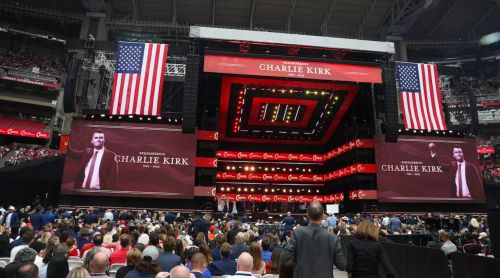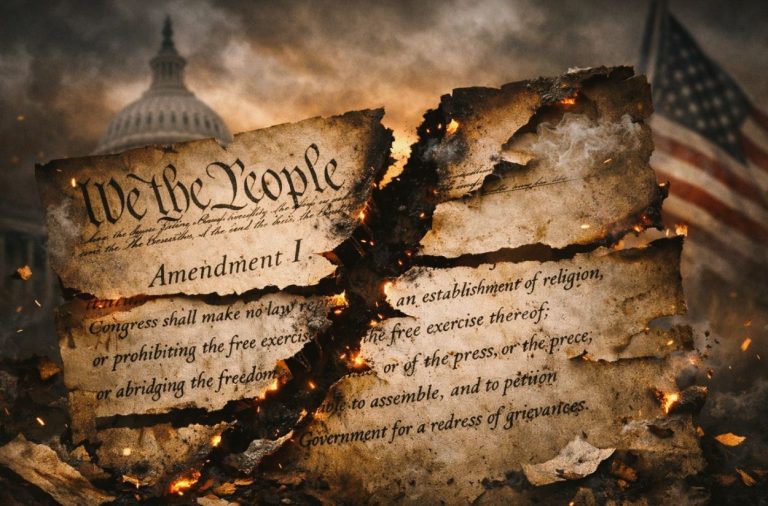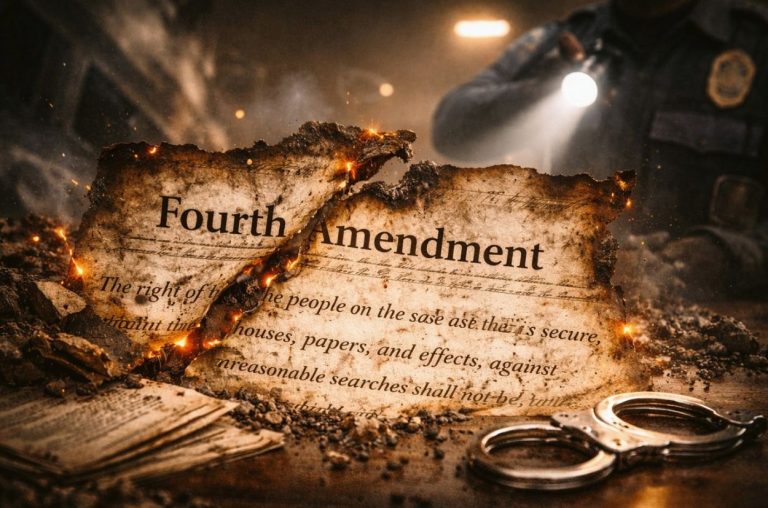

Trump and his allies now insist that criticism of Kirk dishonors the dead, yet for years they looked the other way as Trump demeaned war heroes, mocked political rivals, and disregarded others.

By Matthew A. McIntosh
Public Historian
Brewminate
Introduction
In the aftermath of Charlie Kirk’s murder, conservative leaders, Donald Trump foremost among them, have unleashed a barrage of condemnation against anyone who dared to criticize the late activist. Across social media and cable networks, the refrain has been the same: questioning Kirk’s legacy in death is “disrespectful,” “un-American,” even “sacrilegious.” Yet the same voices now demanding reverence were silent, or in many cases complicit, when Trump himself openly disrespected the dead, from war heroes to presidents to private citizens whose families grieved in public.
The double standard is striking. When critics challenge Kirk’s politics posthumously, Trump’s allies cry foul, invoking decency and compassion. But when Trump mocked John McCain’s captivity, raised flags to full-staff in defiance of mourning traditions, disparaged fallen soldiers as “suckers” and “losers,” or conducted himself boorishly at Jimmy Carter’s funeral, those same voices had little to say. The issue is not one of principle but of political expedience: respect for the dead is demanded when it shields allies from critique, yet dismissed when inconvenient to Trump’s ambitions.
The Kirk Murder and Conservative Reaction
Charlie Kirk’s death sent shockwaves through conservative circles. As the founder of Turning Point USA, Kirk had built a loyal following by styling himself as a culture warrior, celebrated by Trump and his allies for mobilizing young conservatives. Within hours of his murder being confirmed, tributes poured in from across the right, each emphasizing his role as a “patriot,” “fighter,” and “voice for freedom.”
But the mourning soon took on a sharper edge. Donald Trump himself quickly pivoted from remembrance to recrimination, condemning anyone who voiced criticism of Kirk after his death. On his social media platform, Trump characterized detractors as “disgusting” and “low-life losers,” insisting that on respect and admiration. Conservative commentators echoed the line, painting even measured critiques of Kirk’s polarizing rhetoric as unthinkable attacks on his memory.
This fervor was not just about Kirk’s personal legacy; it was about drawing boundaries around public discourse. By declaring that criticism of Kirk in death was off-limits, Trump and his allies effectively sought to sanctify him, elevating his political influence beyond reproach. The outrage campaign framed dissent as indecent, even dangerous, warning journalists, opponents, and ordinary citizens alike that questioning Kirk’s record after his murder would invite swift and merciless backlash.
Trump’s Long Record of Disrespect for the Dead
Overview
While conservatives today insist that mourning demands absolute silence from critics, Donald Trump’s own record reveals a long history of dismissing, mocking, or outright insulting the dead. Far from being a paragon of reverence, Trump has repeatedly politicized death, undermined solemn traditions, and spoken about fallen leaders and soldiers with disdain.
Disrespect at State Funerals and Mourning Rituals
When Senator John McCain died in 2018, presidents and lawmakers from both parties honored him with lowered flags and public tributes. Trump, however, broke with tradition by raising the White House flags back to full-staff after only two days, despite federal guidelines requiring a longer mourning period for a senator. The move sparked bipartisan outrage, with veterans’ groups condemning the gesture as petty and disrespectful. When McCain was alive, his service was disparaged by Trum, who said, “I like people who weren’t captured.”
Similar controversies emerged after the death of former President Jimmy Carter in 2024. During the national mourning period, Trump’s decision to raise flags prematurely once again drew fire. According to The Southerner, the move “deepened partisan divides” by treating a moment of national unity as a political calculation. At Carter’s funeral itself, Trump’s demeanor was widely described as inappropriate and awkward, with observers blasting his conduct as “disrespectful” at an event meant to honor the nation’s 39th president.
Attacks on Fallen Soldiers and Military Families
Trump’s disregard for solemnity was not confined to political funerals. In 2020, multiple outlets reported that Trump privately referred to American war dead as “losers” and “suckers”, a revelation that ignited fury among Gold Star families and veterans’ organizations. The family of a slain U.S. sergeant also publicly accused Trump of showing disrespect during memorial arrangements, saying they felt their loved one’s service had been reduced to a political prop.
Disparaging Remarks About Slain Public Figures
Even when speaking about civilian leaders who died in tragic or violent circumstances, Trump often showed little compassion. When a Minnesota lawmaker was killed in 2025, Governor Tim Walz blasted Trump for responding with “no compassion”, saying his remarks betrayed a lack of basic human decency. His long-running attacks on McCain further illustrate the point: refusing to honor him in death, Trump infamously said, “I like people who weren’t captured,” reducing a war hero’s suffering to a punchline.
These incidents form a clear pattern. Trump has repeatedly disregarded the dignity of the dead when it suited his political instincts, even as his allies now demand unconditional reverence for Kirk.
The Silence of Conservative Voices
The most striking element of this contrast is not simply Trump’s conduct but the quiet that surrounded it. When Trump raised flags back to full-staff after John McCain’s death, Republican leaders offered little resistance. Many who had worked alongside McCain for decades declined to rebuke Trump publicly, fearing political backlash or the wrath of his base. Even when veterans’ groups condemned the decision, GOP officials largely averted their eyes.
The pattern repeated itself in subsequent years. Trump’s premature end to the Carter mourning period was met with outrage among Democrats and historians of presidential tradition, yet conservatives who now demand absolute respect for Charlie Kirk stayed silent. When reports surfaced that Trump had called fallen soldiers “losers” and “suckers,” many Republican lawmakers reflexively defended him, dismissing the accounts as “fake news.” Their words did not match the fury they express today when a critic dares to raise a question about Kirk’s legacy.
Even in the face of personal tragedies such as families of slain service members and a Minnesota community grieving a murdered lawmaker, Republican leaders minimized or ignored Trump’s role. Walz’s charge that Trump showed “no compassion” for the slain lawmaker was largely ignored on the right. In these moments, the demand for reverence and restraint in public discourse evaporated.
By contrast, Kirk’s death has prompted immediate calls for a wall of silence around his life and politics. Trump’s allies framed criticism as a moral failing, a transgression beyond the bounds of civic debate. The hypocrisy is plain: respect for the dead is invoked not as a universal value but as a partisan weapon, used selectively to protect political allies while excusing Trump’s own transgressions.
The Weaponization of Mourning
Death has always carried a sacred place in public life, offering moments when politics are meant to pause in favor of shared humanity. Yet under Trump and his allies, mourning itself has been transformed into a political instrument. When Charlie Kirk was killed, conservatives did not simply grieve; they sought to use his death as a shield, declaring his record untouchable and branding any critique as indecent. In this framework, mourning becomes less about honoring the dead than about disciplining the living.
This selective invocation of respect exposes the hollowness of the appeals. When Trump mocked McCain, belittled fallen soldiers, or treated presidential funerals with disregard, conservatives had no appetite for enforcing the “rules” of reverence they now demand. The difference lies not in principle but in utility. Kirk’s memory can be marshaled as a rallying cry for Trump’s base, while past figures, especially those who opposed or complicated Trump’s image, were reduced to fodder for mockery.
The danger of this politicization is twofold. First, it corrodes genuine mourning by transforming grief into a partisan litmus test. Second, it delegitimizes criticism by declaring entire legacies beyond debate. History shows that the legacies of public figures, especially those as polarizing as Kirk, must be subject to scrutiny if civic memory is to remain honest. To forbid that scrutiny in the name of “decency” is to wield mourning as a cudgel, not a comfort.
Conclusion
The outrage following Charlie Kirk’s murder has revealed more than grief; it has exposed a profound hypocrisy. Trump and his allies now insist that criticism of Kirk dishonors the dead, yet for years they looked the other way as Trump demeaned war heroes, mocked political rivals, and disregarded traditions of mourning that unite the country in loss. Respect, in this telling, is not a principle but a weapon, invoked to shield allies and discarded when inconvenient.
If mourning is to mean anything beyond partisan theater, it must be consistent. The dignity extended to Kirk in death should have been extended to McCain, to Carter, to fallen soldiers, and to ordinary families grieving loved ones. To demand silence now while having excused Trump’s repeated violations of decency is not respect; it is exploitation. True reverence for the dead requires honesty, compassion, and fairness, not selective outrage in service of power.
Originally published by Brewminate, 10.01.2025, under the terms of a Creative Commons Attribution-NonCommercial-NoDerivatives 4.0 International license.


